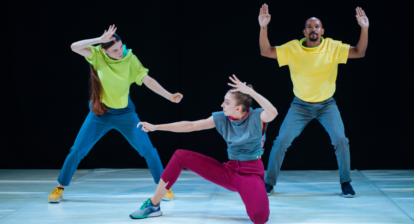The live performance sector had received generous support from the federal government in the 2021 budget. The 2022 federal budget is comparatively more modest.
The federal budget tabled today by the Honourable Chrystia Freeland unequivocally acknowledges that “both the number of productions and the employment levels in the performing arts sector remain significantly below pre-pandemic levels.” Yet, the budget is fiscally prudent. By the looks of it, there’s an underlying assumption that the performing arts sector will have caught up with the rest of the economy by the end of this fiscal year.
The only new funding targeted specifically for the performing arts sector is a $12.1 million investment to the National Arts Centre to support the creation, co-production, promotion, and touring of performing arts productions. The budget does not offer an extension of Recovery and Reopening Funds into the 2023-2024 fiscal year, even though economic indicators suggest that the performing arts sector won’t be fully recovered until at least 2025. The budget is also silent about the base funding for the Canada Arts Presentation Fund (CAPF). The $8 million supplement, announced for the first time in the 2019 budget, has been extended up until 2023-2024. Yet, even with this supplement, taking inflation into account, the CAPF’s parliamentary appropriations are falling below the program’s initial funding level when it was first created 21 years ago.
The federal budget also includes an additional $50 million in 2022-23 to compensate Canadian arts, culture, and heritage organizations for revenue losses due to public health restrictions. By means of comparison, box office revenues for the live performing arts alone totalled $3.8 billion before the pandemic.
The budget did not respond to requests from the Coalition of Hardest Hit Businesses regarding the Tourism and Hospitality Recovery Program.
“Although we are excited to welcome artists and audiences back into our spaces, there is still so much work to be done to fully revive the performing arts sector. The 2022 budget did not provide us with the kind of long-term view to recovery that we were anticipating and that we still need. But we trust that the National Recovery Summit will provide another opportunity to lay out a robust game plan, a roadmap to rebuilding a vibrant performing arts sector.”
Natalie Lue, Chair, CAPACOA
“We look forward to addressing the needs of the industry with Minister Rodriguez as we move together towards recovery. This federal government has had our back, and we know it will continue to do so.” – Sue Urquhart, Executive Director, CAPACOA
Media Inquiries
For media inquiries, please contact: Colin Frotten, Communications Director, CAPACOA at [email protected].





